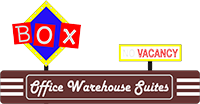When renting an office warehouse for rent, businesses often focus primarily on base rent, but there are several secondary costs that can significantly impact the overall budget. Understanding these costs helps tenants make informed financial decisions and avoid unexpected expenses.
We are Box Office Warehouse Suites, located in the Alliance Area of North Fort Worth, and we have what you need in any industrial space and/or commercial property for rent. Call us at 817-439-3224 for more information.
Below are some key secondary costs to consider when leasing an office warehouse space.
-
Common Area Maintenance (CAM) Fees
Common Area Maintenance fees are a crucial expense in many office warehouse, or warehouse for rent, leases. These fees cover the maintenance and upkeep of shared spaces such as parking lots, landscaping, hallways, and lobbies. The costs may also include security services, janitorial work, and repairs to common areas. Tenants should clarify what is included in the CAM fees and whether they are fixed or variable.
-
Property Taxes with an office warehouse for rent
In many lease agreements, tenants are responsible for a portion of the property taxes. This is especially true in triple-net (NNN) leases, where tenants pay taxes in addition to rent and CAM fees. Property taxes vary by location and can increase over time, so businesses should factor in potential tax hikes when budgeting.
- Insurance Requirements
Landlords typically require tenants to carry insurance policies, such as general liability insurance and property insurance. The cost of these policies depends on factors such as the size of the warehouse, the type of business conducted, and local regulations. Additionally, some landlords require tenants to contribute to the building’s insurance coverage.
- Utilities and Energy Costs
Electricity, water, gas, and waste disposal are essential operational costs for any office warehouse. Some warehouses have energy-efficient systems that reduce electricity expenses, while others may have high utility costs due to outdated HVAC systems or poor insulation. It is advisable to assess the warehouse’s energy efficiency before signing a lease.
- Maintenance and Repairs
Depending on the office warehouse for rent lease type, tenants may be responsible for maintaining and repairing certain parts of the property. This could include HVAC servicing, plumbing, electrical systems, and structural components. Reviewing the lease agreement carefully can help tenants understand their maintenance obligations and avoid unexpected repair costs.
- Tenant Improvements and Modifications
Many businesses require modifications or buildouts to make the warehouse space suitable for their operations. These modifications could range from installing shelving and storage systems to reconfiguring office areas. Some landlords offer tenant improvement allowances, but any modifications beyond this allowance must be covered by the tenant.
- Security and Safety Expenses
Depending on the location and nature of the business, additional security measures may be necessary. These could include alarm systems, security personnel, surveillance cameras, and reinforced access points. Safety-related costs, such as fire suppression systems and compliance with Occupational Safety and Health Administration (OSHA) regulations, should also be factored into the budget.
- Parking and Accessibility Fees
Some office warehouses charge tenants for parking spaces, particularly in urban areas where parking is limited. Accessibility features, such as loading docks, ramps, and special permits, may also come with additional costs. Understanding these expenses is important for businesses that rely on frequent deliveries or customer visits.
- Legal and Administrative Costs
Negotiating a warehouse lease may require legal assistance to review contract terms and ensure favorable conditions for the tenant. Attorney fees, administrative fees, and other professional services can add up, making it necessary to allocate a portion of the budget to these expenses.
- Relocation and Moving Costs
If a business is relocating to a new warehouse, moving costs should not be overlooked. These costs include transportation, equipment installation, and downtime during the transition. Hiring professional movers and ensuring minimal disruption to operations can help mitigate these expenses.
Conclusion
Understanding secondary costs associated with renting an office warehouse is essential for effective budgeting and financial planning. Tenants should carefully review lease agreements, negotiate terms when possible, and anticipate additional expenses beyond base rent. By considering all costs upfront, businesses can avoid financial strain and ensure a smooth rental experience.
A final word about Box Office Warehouse Suites
Box Office Warehouse Suites is part of the Fort Worth Design District, North Fort Worth, where everything you could want in commercial or industrial property for rent can be found. Call us today about an affordable warehouse for rent, shop for rent, flex space, you name it and we’ve got it.







